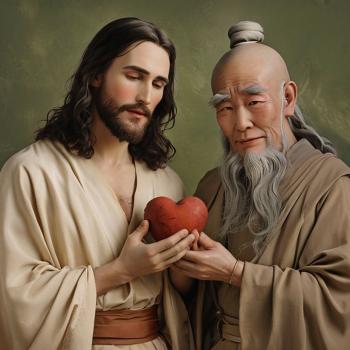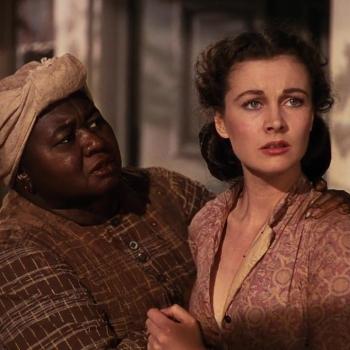Catholic education was the key. Through its networks of schools and athletic leagues, the church provided age-related levels of religious formation, learning, and belonging that extended through high school and, for some of us, on into college. Church, therefore, always connoted more than just the local parish: kids experienced it anywhere, including schools, where the Mass was said. In this way, Catholicism engendered a powerful sense of community-not because it sheltered Catholic kids from the outside world, as sectarian subcultures try to do, but because it embraced our dating and mating and football playing within an ambient world of shared symbolism, faith, and worship.
While the pervasive Catholic culture that Woodward describes is mostly gone, and unrecoverable at the level it once was, the world he describes can at least serve as a starting point for today's parents. For example, if parents can send their child to a Catholic school, and can afford it, there should be compelling reasons not to choose that option.
Faith is not knowledge. We might also ask the question, "What is catechesis? What is our end goal? What does a well catechized person do or say or think?"
The subject of catechesis is something fundamentally different than, say, physics or biology. Sure, Catholics should know terms and concepts and ideas, but catechesis always aims at transformation. As St. Paul reminds us in 1 Corinthians 13, this transformation does not aim for eloquence or knowledge, but for love.
One's actions and habits of heart, then, are just as crucial to catechesis (if not more so) than ruminations on the Trinity. Students who love effortlessly, who demonstrate a desire to sacrifice, who show sympathy for the least of our society: these are young men and women growing, even if they do not acknowledge it, in Christian wisdom. These are young men and women whose own makeup and experiences have begun to affect a kind of catechesis, even if they wouldn't call it that. This witness, and this wisdom, cannot be ignored.
It's complex. This is obvious but needs to be said: catechesis is complex. There are best practices and a basic list of do's and don'ts, but the process of handing on the faith involves forces and factors beyond mastery.
Blame for a falling away, or praise for an increase in piety, should not fall to any one group or person. There is no formula that discloses a permanently right way, no spiritual genome the mapping of which unlocks the secrets of the spiritual life. Some of the most religiously informed people find no reason to bend a knee in prayer, while some of the least religiously informed have a devotion that is bewildering. Some are turned to Christ by Augustine or Aquinas; others, by a friend, a spouse, or a chance encounter.
To borrow (and slightly expand) from Pope Benedict, there are as many ways to Christ as there are people. This should lighten us up and free us from undue anxiety as we puzzle over the perfect pedagogy. And perhaps the tension is good—a reminder to be humble and to recall that we are touching mysteries beyond our full comprehension.




